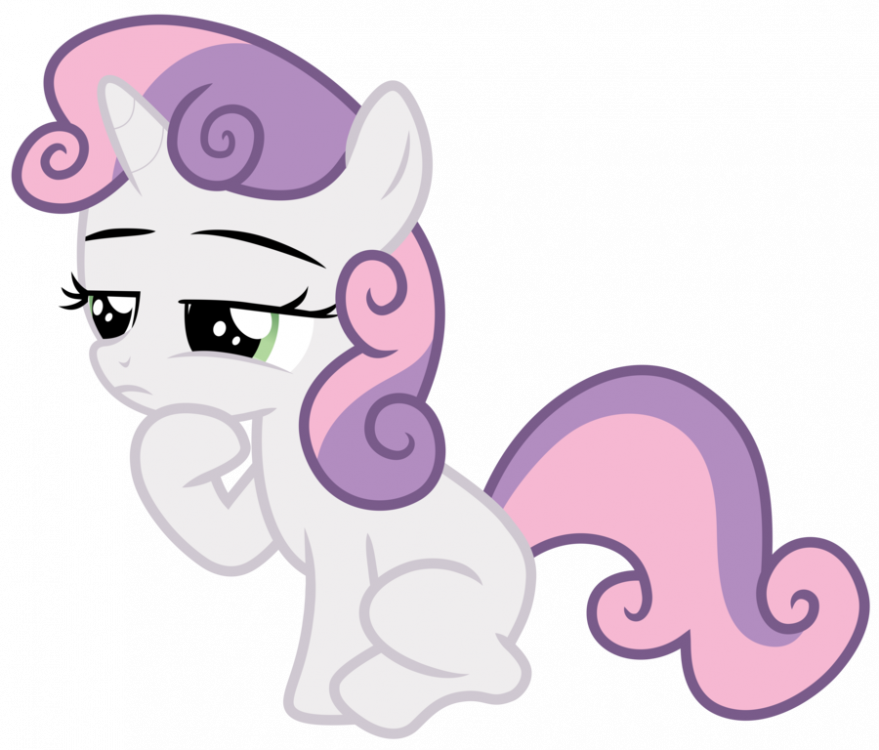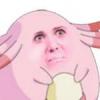Ponyism: An Attempt at a Brief Introduction
 The Concept “Friendship is Magic”
The Concept “Friendship is Magic”
The television show is based on one singular concept that can morally divide into a whole matrix of other moral modules. That model is that “friendship is magic”.
Now when we hear that, a few opinions come to mind. One is the positive “Well of course, friendship is important,it almost feels like magic sometimes” and if you ask me, a very beneficial concept to a franchise like my little pony. And the other, negative “There's more to life then just making friends, what a stupid idea.”
I've seen and heard both of these opinions defended by brony's and brony haters alike. But what is the overall nature of this concept, and how could it spark something like the creation of this show and something I call Ponyism?
The claim that friendship is magic is obviously a promotion to the central idea that making strong social connections with people is a highly pleasant activity, and can invoke a splendor to life and other things “ Like magic”
And this is highly understandable coming from a human aspect. Human beings are specifically social animals. It is the one thing that is beneficial to us, much like the peacocks tail feathers or the butterfly's delusive patterns embedded on the wings that confuse or scare off predators.
Our specific survival tool is our ability to communicate and articulate ideas into a social structure that effect the environment. Our lives depend on other people. Baby's are born with nearly no chance of surviving .They depend on another human's collective care to mature and develop for the world to come.
In the Darwinian sense, our altruism, even though its not necessarily a fend for yourself sort of attitude, is still a method that benefits us and our genetic propagation. But friendships and social connections are important on moral scales just as much of course.
Our moral activities come from our capacity to understand what is morally right (for the benefit of humankind) and what is wrong( that negates humankind). In the show my little pony, Princess Celestia is the Moral Moderator and the balance that would represent our moral rights and responsibilities. But instead of expressing humanitarian views, ethnic acts of kindness and sensibility for humans, she expresses a few that is similar (but with a few justifications) to pony's.
This principle is something that is worth learning, because the way it lays out moral rights and wrongs and the justifications of truth and falsifiable. I call this Ponyism.
To Practice Ponyism is something that is highly different among the pragmatic moral views of most people (In this case, secular people). Celestia is the foundational teacher of this practice, and the show expresses its importance, and fortunately appeals to both children and adults because it is a different way of looking at the moral structure of people. To practice ponyism doesn't require one to be a pony either! It is a concept that is essentially a collection of popular concepts in historical philosophy of the west and the east.
How can I practice Ponyism? What does it consist of?
Practicing the art of making connections with people is not what ponyism is. I have a feeling that's what some readers might get from this. But in order to practice ponyism, you must have the longstanding tolerance of other peoples to succeed. Friendship is a byproduct of tolerating and loving other people, I'm pretty sure everypony knows that. The real art of ponyism comes from the moral standards of the characters we know and love that exist in the realm of the MLP world.
The art of Ponyism derives from the concept of Lawrence Kohlberg's stages of moral development. The theory holds that our moral reasoning and the foundation for out ethical structure, has six identifiable stages. Kohlberg looked at the development of moral judgment sanctions earlier then the late Piaget,who stated that morality and logic develop through constructive stages. From then on, Kohlberg concluded that the process of moral development correlated with justice and liberty. Also he finalized that the process kept flourishing throughout ones lifetime.
One who teaches the moral development would indeed be at the highest scale of morality, that's why our governance lies heavily on concepts like ones derived from the Old Testament such as “Tho shalt not kill, Tho shalt not commit peaty theft etc etc...”.
As we have already established, Princess Celesta is the moral teacher of Ponyism, and is the highest moral authority in the land of Equestria.
She is above the principle on the scale, represented here(Kohlberg Scale attached):
Twilight Sparkle is at the 3rd scale, being the princesses underling. She is the shows main front for expressing ponyism in the name of science. She shares a Socratic method of judgment, and also practise's the atheistic skeptical approach that David Hume developed.
And that is the first moral characteristic of Ponyism:
1.)Before any evidence shows a truthful claim to nature or morality, speculation must be done beforehand, then implementing the scientific method to gain knowledge and to build upon the natural, moral understandings of such claims.
Example: In “MMMystery on the Friendship Express" Twilight helps Pinkie find out who was the culprit(s) that defiled the “MMM” cake. As Twilight used her skepticism and reductionist methods, she made a conclusion that turned out not to be Pinkies initial intention of the Bakers (even though they still were not innocent).
Rainbow Dash sits at the 2nd scale, at Self interst. Even though her element of harmony is loyalty, she has an aspect of herself as a hero of equestria, even though she is just like every other pegasus and controls the weather, and that's negating her ability of speed, whitch she uses as an egotistical tool to differentiate herself (although she is 20% cooler than all of the other ponys).
This represents the second moral characteristic of ponyism:
2.)
In order to spread love and peace through the availability of truth and knowledge, one has to love them selves. If one does not love themselves, how could one love others?
Fluttershy is at the bottom 1st scale, at Avoiding punishment. She is also a highly important character for ponyism, being that her personality represents what the foundational practices of ponyism rests on. She's at the first scale because although she is kind and loving, she has to deal with her extreme social anxiety's and her fears of being judged by other pony's, as Aristotle tells us is Shyness. As someone who is shy, they fear that when they do something wrong, a sort of mental punishment is at hand, and that comes in the form of judgment. Fluttershy expresses the 3rd point of ponyism, and the core concept for what I call the Flutter Shy Philosophy (But that's for another article, it's still in the conceptualizing process).
3.)
To love truthfully is not hedonistic, it is essential for harmony. Loving truthfully is a gift of nature, and to love because of nature, it is necessary to love nature by its own merits.
Rarity is at the 4th scale of law and order, because she is very keen on fine detail. Being known for her generosity, you could say that she develops relationships because of her fine detail, because she can be a good judge of character and understand more( this is the rarity after she learns her lesson after she runes Twilight's first slumber party). She represents the fourth point of ponyism:
4.)
In judging the characteristics that define a person or situation, one must have a very persistent attachment to fine detail.
Pinkie Pie is at the scale of social contract, making sure that everpony in Ponyville has a smile on there face. Her moral outlook is that of extreme optimism, and that is what drives aspect of Ponyism. The concept of optimism is usually associated with the name of Gottfried Wilhelm Leibniz, who held that we live in the best of all possible worlds, or that God created a physical universe that applies the laws of physics, which Voltaire mocked in his satirical novel Candide.
5.)
To uncover the sheets of knowledge, one must be optimistic that one can do so in the first place, and to deduce the possibility for the optimal action to be real.
And finally, Apple Jack sits on the top as Principle, because since her element of harmony is honesty, that highlights a point in ponyism. The key principle of ponyism is honesty. If your scientific inquiry comes up short, be honest about your mistake, and be determined that the truth will come to light.
6.)Honesty will help anypony come to realize the truth,while ignorance and lies only step on the tail of science and understanding.
So what do all of these points mean? They mean that morality can come from a basic understanding and further inquiry on our understanding. Our moral reasoning can definitely come from science, and that spreading knowledge to others can initiate a spread of peace and harmony among newly forming relationships and friendships.An important moral stance that kids and bronys should share.
Further Research:
To look at ponyism and the moral aspects of My Little pony, I recommend these suggestions for study.
Why people believe weird things, a video on TED: talks
Also on TED--->http://www.ted.com/conversations/1581/being_skeptical_as_an_overall.htm
The book Sister Carrie (Paperback)
by Theodore Dreiser (on goodreads.com)
And more external places to look for morality and MLP coming soon!
What did you think? Leave a comment and tell all your philoso-bronys to come check the blog and recomend things to post!
~FluttershyForPeace
-
 2
2




4 Comments
Recommended Comments
Create an account or sign in to comment
You need to be a member in order to leave a comment
Create an account
Sign up for a new account in our community. It's easy!
Join the herd!Sign in
Already have an account? Sign in here.
Sign In Now